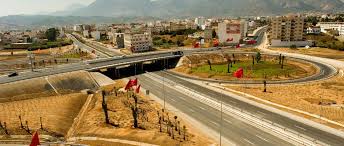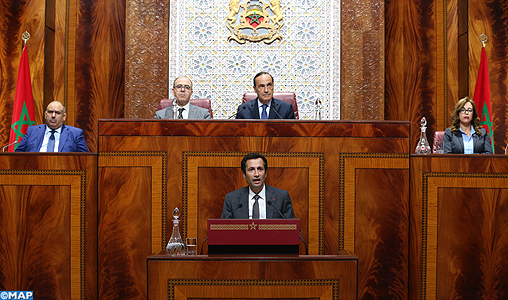 The new economic zone whose works were launched a few weeks ago in Fnideq has officially come into being after its legal status was recently published in the Official Gazette.
The new economic zone whose works were launched a few weeks ago in Fnideq has officially come into being after its legal status was recently published in the Official Gazette.
Under the decree, the public company managing the activity of the nearby Tangier Med Port, Tanger Med Special Agency (TMSA), has received government approval to create the company dubbed “Zone d’Activité Economique de Fnideq” (Zone of Economic Activity of Fnideq), with an initial capital of 1 million DH ($103,148).
According to the recently published decree, the project aims to install the necessary infrastructure for economic and social development in the region.
In addition to the land granted by the Moroccan state, the project will cost 200 million DH ($20.63 million), including both the planning and construction expenses. The project’s financing will extend over three years, from 2020 to 2022 and will be provided by the Ministry of the Interior ($7.22 million), the Ministry of Industry ($4.13 million), the Tangier-Tetouan-Al Hoceima Region Council ($8.25 million), and the Agency for the Promotion and Development of the North ($1.03 million).
The Oued Negro Free Zone project, as it is called in the legal text, is meant to “create a new economic dynamic in the region under the M’diq-Fnideq prefecture and the Tangier-Tetouan-Al Hoceima region, through setting up a platform that can attract economic activities with high added value.”
The newly-created company will have the responsibility of managing, developing, and marketing the project, as well as attracting investments.
Its primary role remains however to provide an alternative to the informal trade activities in the region.
Morocco has permanently closed the crossing points of the Spanish enclaves of Sebta and Melilla in the fall of 2019 to stop smuggling through theses crossings and put an end to the ordeal of the “mule women” who used to carry heavy packages as they cross the border between the city of Sebta, under Spanish control, and Morocco.
The losses incurred by smuggling at the Sebta crossing point alone were estimated at the time at €730 million.
As the crossing points closures affected thousands of households that were making a living on smuggling, it was necessary to set up economic alternatives in the provinces of Tetouan and M’diq-Fnideq.


